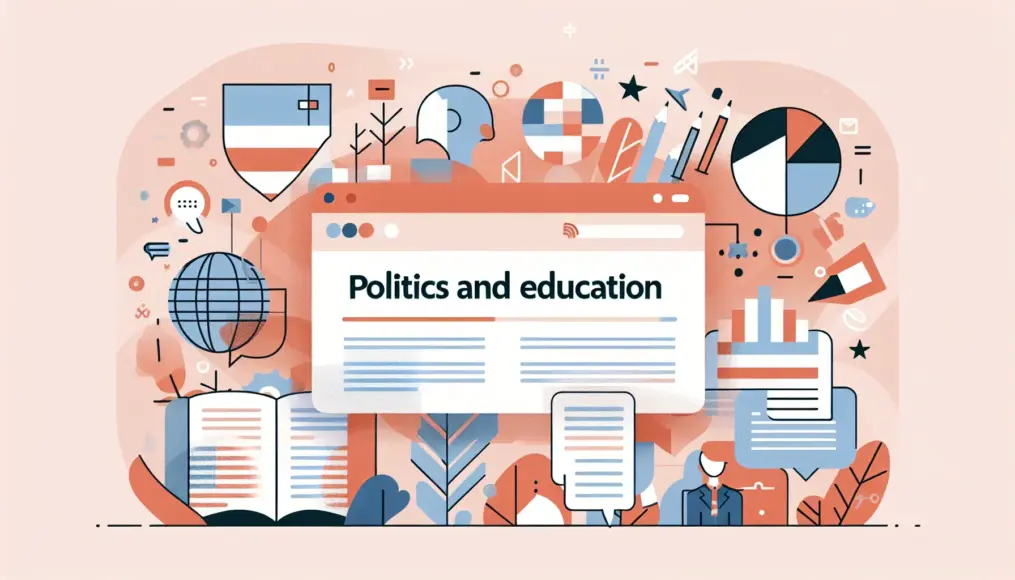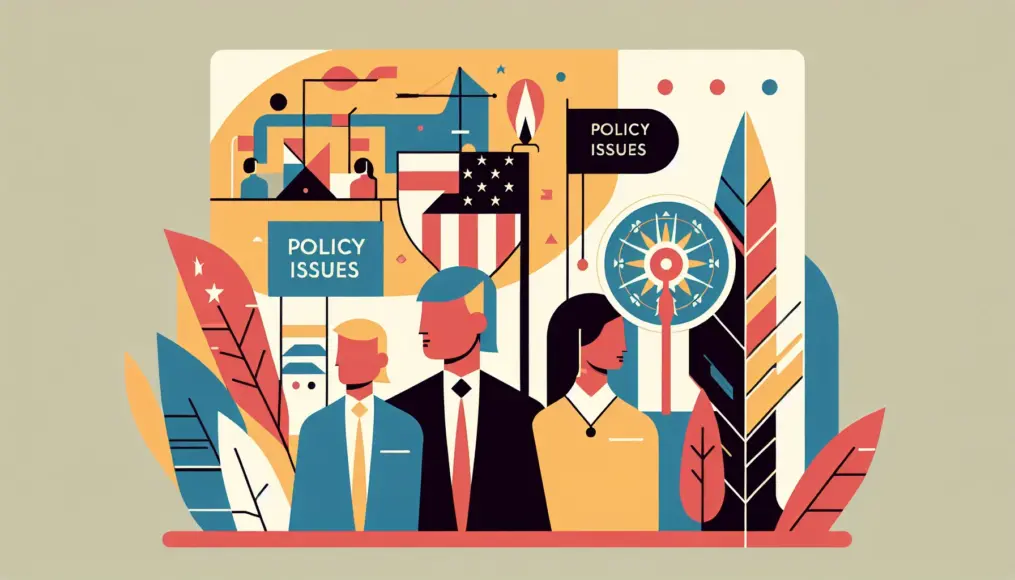The relationship between politics and education in Japan is deeply rooted in the fabric of our lives. Looking back through history, we can see how the evolution of political systems and educational frameworks has been closely intertwined, each influencing the other. As we look toward the future, grasping this relationship is essential for us as citizens to build a better society.
In this article, we will explore a wide range of topics, from the historical background of Japanese politics to the role of education and its transformations, current issues we face today, and recommendations for the future. By examining the interplay between politics and education, we may uncover insights that could help us address the challenges ahead.
- A retrospective on post-war politics and the education system in Japan
- An exploration of contemporary issues in educational policy
- Insights into the direction of educational reform for the future
Historical Background of Japanese Politics
The history of politics in Japan has significantly shaped our education and society. Particularly, the political system established after World War II brought about numerous changes to the education system, deeply embedding itself into our daily lives. In this chapter, we will explore the foundations of post-war politics and the major political transformations that occurred. Understanding these developments will help us consider their influence on contemporary education and politics.
Foundation of Post-War Politics
After the war, Japan needed to construct a new political system. The Japanese Constitution, enacted in 1947, aimed to establish a society based on democracy and emphasized the importance of education. This constitution guaranteed the right to education for all citizens. It played a crucial role in shaping subsequent educational reforms and policies, serving as a catalyst for changing public consciousness.
Moreover, post-war politics introduced various measures to enhance the quality of education. The enactment of the Fundamental Law of Education and the expansion of compulsory education created an environment where children could receive equal education. Thus, post-war politics became closely intertwined with education, becoming a vital element in nurturing the country’s future.
- The Japanese Constitution guaranteed the right to education
- Post-war educational reforms changed public consciousness
- Political changes influenced the education system
Significant Political Transformations
Japan underwent several significant political transformations after the war. Particularly during the 1960s and 1970s, alongside economic growth, the education system also experienced substantial changes. During this period, equal educational opportunities were emphasized, leading to initiatives that ensured children from various social strata could access education equally. These transformations held great significance as they fostered the overall development of society through education.
Furthermore, from the 1980s onward, the focus shifted toward improving the quality of education. As globalization progressed, there was an increased emphasis on English education and information technology, leading to initiatives aimed at equipping children with the skills necessary to engage with the world. These political changes provide important perspectives for understanding the relationship between education and society more deeply.
- Equal educational opportunities in the 1960s and 1970s
- Improvement in education quality progressed from the 1980s
- Educational reforms adapted to globalization were implemented
The Role of Education and Its Evolution
Education is a crucial element that significantly influences our society, culture, and even politics. Over time, education systems have undergone various transformations, always reflecting the needs and values of society. In this chapter, we will delve into the history of education systems and the relationship between education and society. By understanding how education connects with politics and social dynamics, we may uncover insights that can help us shape a better future.
A Brief History of Education Systems
Japan’s education system underwent major reforms during the early Meiji era, a time marked by modernization. Initially modeled after Western education systems, it evolved to include compulsory education, allowing many children to attend school. After World War II, the enactment of the Fundamental Law of Education guaranteed education as a right for all citizens, leading to more equitable educational opportunities.
Thus, Japan’s education system has evolved in response to historical contexts while adapting to the changing times. These changes in the education system consistently reflect societal needs and values, and the influence of politics cannot be overlooked. It’s essential to consider how educational policies and strategies have shaped our society.
- The education system modernized during the Meiji era.
- After World War II, the Fundamental Law of Education guaranteed the right to education.
- Changes in the education system reflect societal needs.
The Relationship Between Education and Society
The relationship between education and society is inseparable. Education not only fosters individual growth but also contributes to the overall development of society. For instance, individuals who receive an education tend to possess richer knowledge and skills, enabling them to contribute more effectively to society. Moreover, the values and ethics cultivated through education are vital for maintaining social order.
Additionally, education has the power to drive social change. In today’s world, with the advancement of information technology and globalization, the role of education has become increasingly significant. By receiving an education, individuals are equipped with an international perspective, ultimately leading to the development of society as a whole. As such, the connection between education and society is profound, with each influencing the other continuously.
- Education contributes to both individual growth and societal development.
- Values and ethics are nurtured through education.
- Modern education cultivates individuals with an international outlook.
Challenges in Modern Politics and Education
In contemporary Japan, there are various issues at the intersection of politics and education. While educational policies continually evolve, they still face numerous challenges. Additionally, the interaction between politics and education is a crucial factor that cannot be overlooked. In this chapter, we will delve into the challenges of educational policy and the interplay between politics and education. Understanding these issues is the first step toward building a better future.
Challenges in Educational Policy
Educational policy is riddled with challenges. For instance, while there is a push for equal quality in education, disparities arise based on regional and familial economic conditions, affecting educational environments. These inequalities significantly impact children’s futures, necessitating urgent measures. Moreover, it’s not just academic performance that matters; the mental well-being of children is also a critical theme. Educational policies must support not only learning environments but also the emotional growth of children.
Furthermore, the working conditions and salary issues facing teachers are significant challenges within the education sector. For teachers to provide quality education, they need a conducive work environment. Addressing these problems will ultimately lead to better educational outcomes.
- There is a demand for equal quality in education.
- Regional and familial disparities affect educational environments.
- Issues regarding teachers’ working conditions and salaries are also crucial challenges.
The Interaction Between Politics and Education
Politics and education have a reciprocal relationship, influencing each other in various ways. Political decisions shape educational policies, while education also impacts the political landscape. For example, citizens who are well-educated tend to have a deeper understanding of politics and are expected to engage actively in civic life. This engagement fosters a collective consciousness aimed at creating a better society.
Moreover, there has been a rising interest among citizens regarding educational matters, leading to an increasing influence of public opinions and demands on educational policies. This dynamic illustrates that the relationship between education and politics is constantly evolving, and their mutual support contributes to the overall development of society.

For more insights related to this topic, check out The Future Shaped by Japan’s Politics and Education: Why Your Political Participation Matters. This article provides a deeper understanding of the interaction between education and politics and outlines specific ways to engage politically, offering tips for building a better future.
- Politics influences educational policies.
- Educated citizens are expected to participate in politics.
- Public interest in education is on the rise.
Proposals for a Better Future
To create a better future, we need reforms in both education and politics. Addressing the challenges faced by modern education and fostering an environment where more people can engage in politics are essential steps toward building a sustainable society. In this section, we will explore the direction of educational reform and the importance of political participation. This might empower each of us to contribute to a brighter future.
Direction of Educational Reform
Educational reform requires a variety of approaches. One key aspect is “personalized learning,” which tailors education to the unique characteristics of each child. Instead of providing the same education for everyone, we can achieve more effective learning by offering programs that cater to individual talents and interests.
Additionally, revisiting educational content is crucial. In today’s rapidly evolving technological landscape, we need to equip children with the skills necessary for the future. For instance, a curriculum that focuses on programming and information literacy is essential for developing competencies that will be in demand in society. Such reforms will make education more practical and meaningful.
- There is a need for personalized education programs.
- Reevaluating educational content is important.
- Curricula that cultivate necessary skills for modern society are essential.
Importance of Political Participation
Just as education is vital, so too is participation in politics. When citizens take an interest in politics and express their opinions, they lay the groundwork for a better society. Encouraging young people to engage actively in political processes is essential for nurturing the leaders of tomorrow.
Moreover, when educated citizens participate in politics, a broader range of perspectives is represented. This brings balanced viewpoints to policy-making and contributes to a fairer society. By participating in politics, each of us can work together to build a brighter future.
- Citizen participation in politics improves society.
- Active involvement from the younger generation is crucial.
- Educated citizens reflect diverse opinions.
Conclusion
In this article, we delved into the deep connection between politics and education. By reflecting on the historical background of Japan’s political landscape from the post-war era to the present, we highlighted the evolution of the education system, current challenges, and offered suggestions for the future. This exploration reaffirmed the understanding that education is not just a means to acquire knowledge but also a vital element that significantly influences the formation of society.
Moreover, by emphasizing the importance of political participation, we recognize that each of us has a role to play in making society better. As we look ahead to the future, understanding the interplay between education and politics and actively engaging in these areas will be key to building a sustainable society.
- Politics and education influence each other in significant ways.
- There is a need for reform in the education system to meet individual needs.
- Citizens’ political engagement contributes to societal development.
To create a better future, let’s deepen our understanding of education and actively participate in politics. We would love to hear your thoughts and experiences in the comments!



Comment